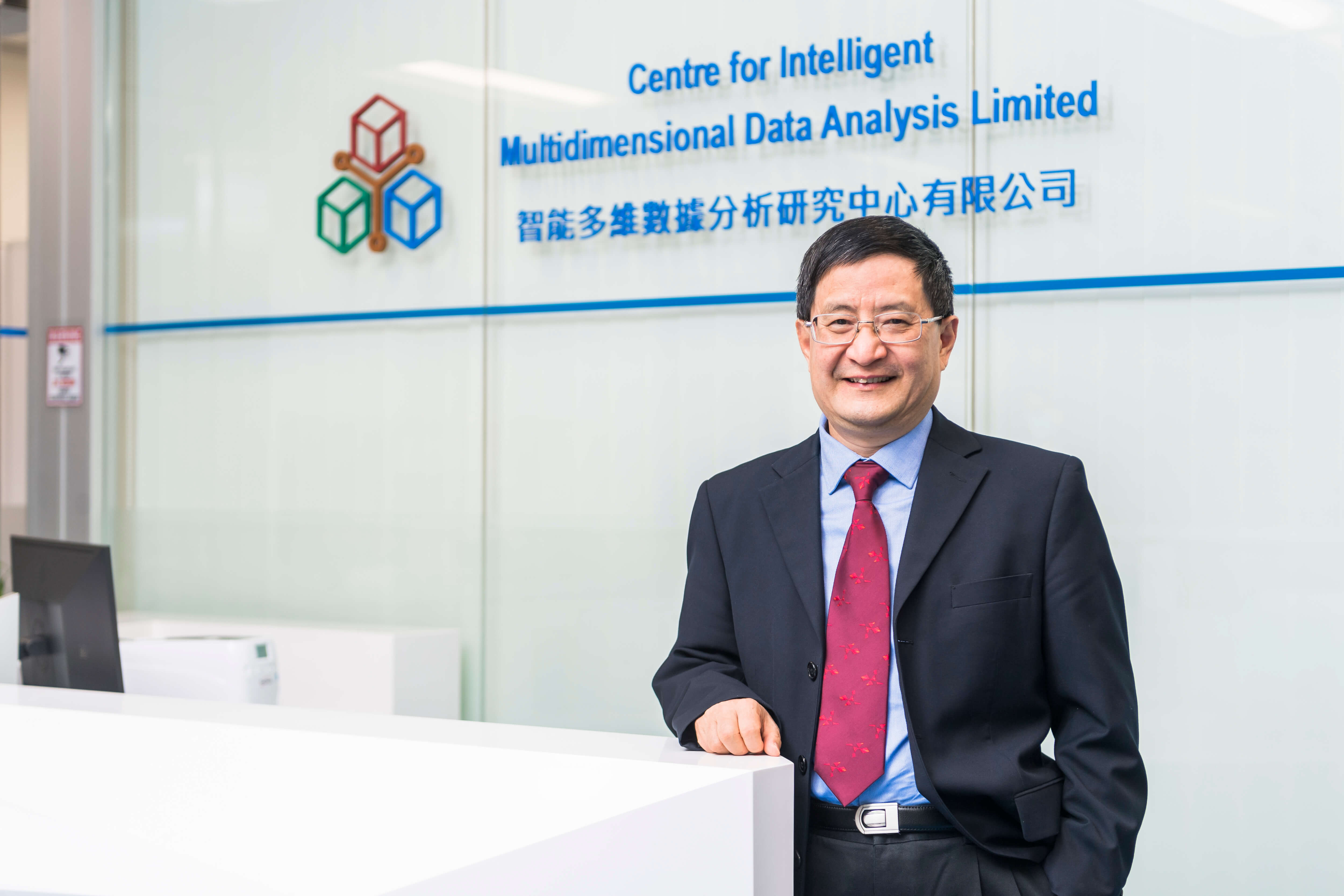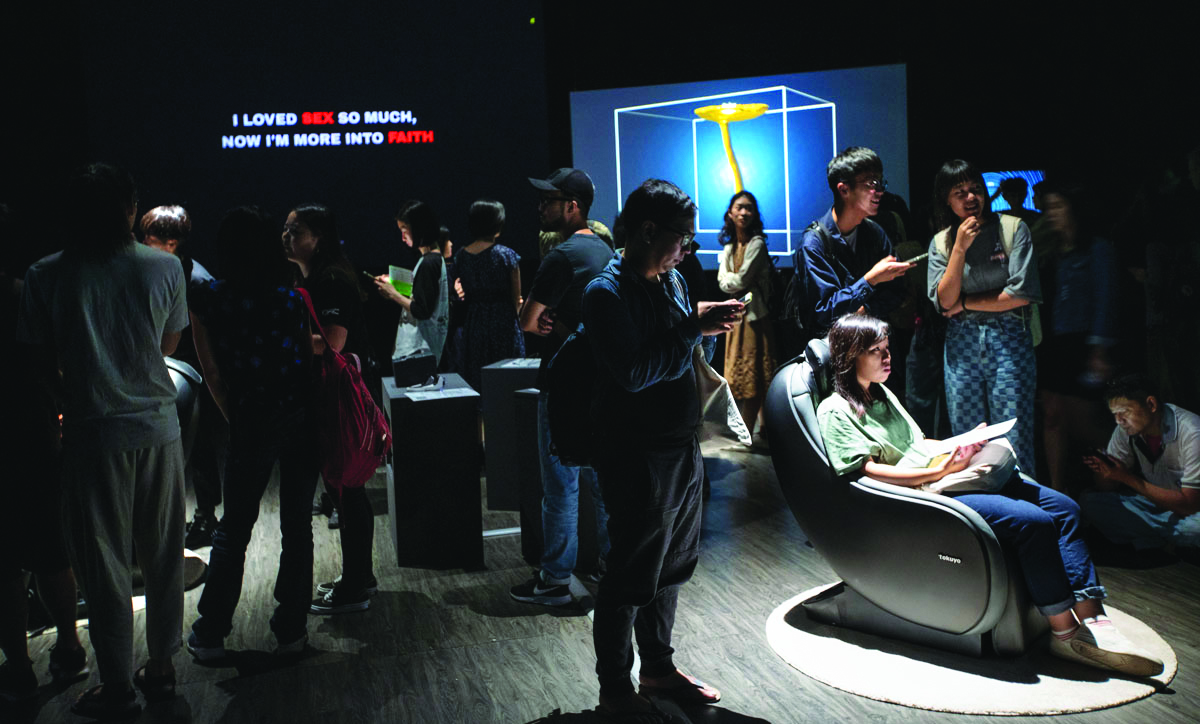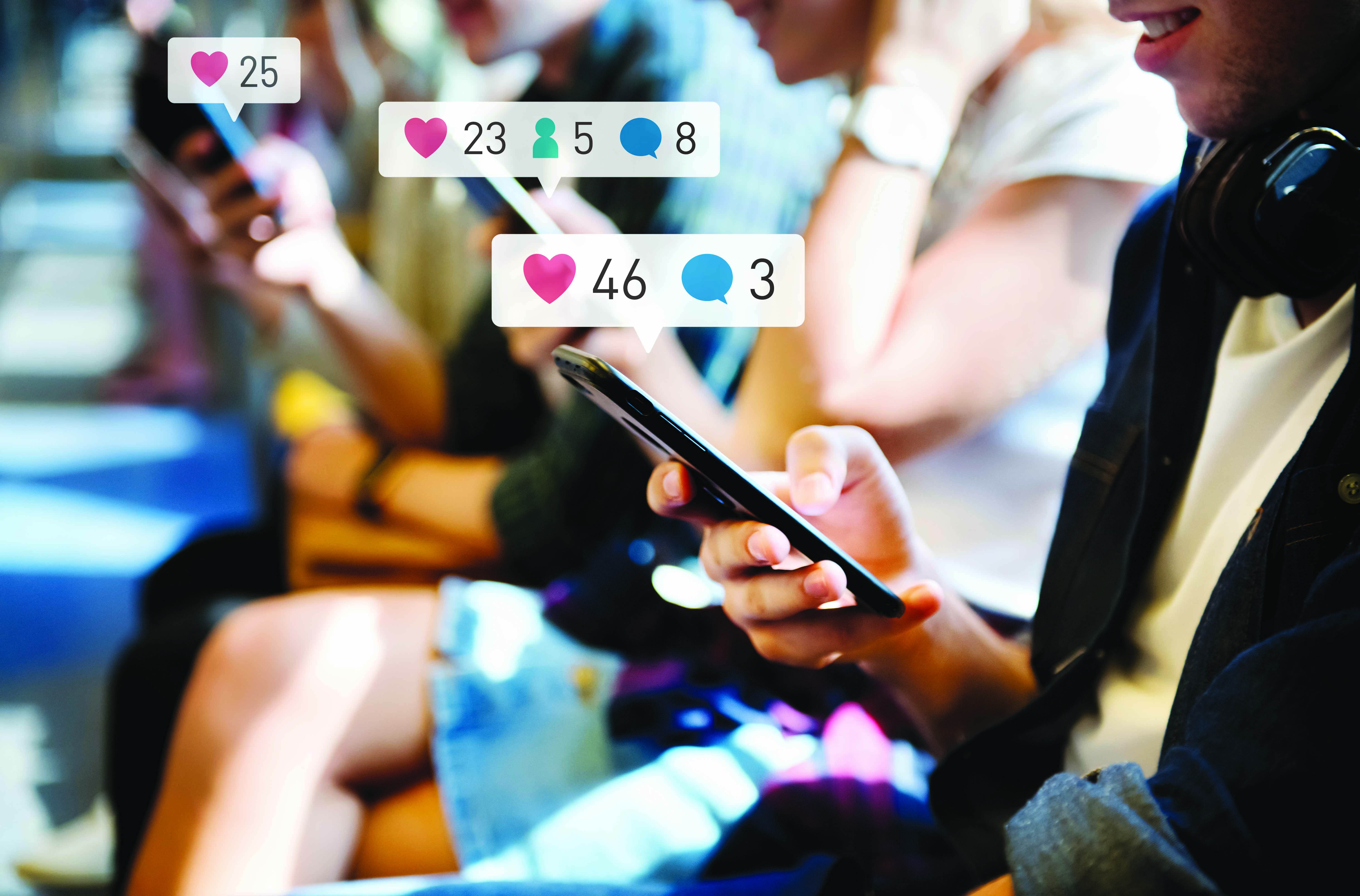Digital Society

Sponsored by

Sponsored by

The impact of the digital age and the potential use of new technological development to advance all aspects of our life is enormous, resulting in a need for vigorous interdisciplinary research, from the application of digital innovations to benefit our daily life to a thorough understanding of the relationship between digital advancement and society.
In response to the increasing demand for data scientists and engineers, CityU launched the School of Data Science (SDSC) and the Hong Kong Institute for Data Science. The first such freestanding academic unit focusing on data science in Hong Kong, SDSC serves as a campus-wide educational resource, fostering collaboration and training high-calibre students for data science-related industries.
Intelligent multidimensional data analysis for imaging and medical advancement
New theories on the computation of complex tensors have been proposed by Professor Yan Hong, Wong Chun Hong Professor of Data Engineering and an expert in imaging science. These new theories can expand applications in imaging, biology, medicine and beyond. Focusing his research on tensor computing to detect and analyse meaningful patterns in datasets, Professor Yan and his team have developed co-clustering methods in collaboration with mathematicians, biologists, medical doctors and computer engineers. They have worked out efficient computer algorithms for matching datasets based on tensor and hypergraph models, and solved an optimisation problem to deal with all the compatibilities among matched data entries through high-order relations.

Professor Yan Hong
Furthermore, Professor Yan has applied tensor computing to cell division data analysis and biomolecular surface characterisation. Working with medical doctors at Queen Mary Hospital in Hong Kong, Professor Yan’s team has analysed all known epidermal growth factor receptor (EGFR) mutants and created a database of their 3D structures. The mutation of EGFR, a type of protein, is a common cause of non-small-cell lung cancer, which constitutes about 85% of all lung cancer cases. The innovative methods proposed will help researchers understand the mechanisms of drug resistance and help doctors plan optimal personalised treatment for cancer patients.
In addition to contributing to medical advancement, Professor Yan has used tensor models to tackle other problems in science and engineering. One discovery involves detecting objects in images and tracking motion in videos, which does not require prior training and represents a major improvement over commonly used classifier-based systems.
Finding the ‘real value’ of human values

Information and communication technologies allow us to easily quantify many aspects of our lives. But how about abstractions like love, peace, respect, and other human values? Professor Maurice Benayoun, a renowned artist, theorist and curator of media art in the School of Creative Media, is working on “MindSpaces HK - Responsive Neuro-design for Urbanism, Architecture and Interior Design”, a project including interactive exhibitions that consider social, innovation and technology challenges from alternative perspectives.
The MindSpaces project, which is funded by the European Union, can improve the design process behind indoor and outdoor environments through participatory design, involving multisensory measurements of individuals’ responses. The project uses technologies like AI, machine learning and the brain-to-computer interface to create an individual and collective “neuro design”, from shaping abstractions to shaping objects and architecture.
One of the creations is the Value for Values project that helps people understand each other better by “giving shapes to values”. Instead of receiving a 3D-printed shape, participants get a Value of Values (VoV) token in a digital wallet and own shapes registered on a blockchain. The shapes are converted into VoV tokens that owners can barter or sell. “On this blockchain trading platform, we can see what the transaction and ranking of values are for human values across individual cultural backgrounds and countries,” said Professor Benayoun.
Understanding political polarization in the new media age

Digital and social media are an integral part of people’s lives. By adopting a big data-based approach, Dr Chris Shen Fei from the Department of Media and Communication has proposed ways of understanding public opinion through online textual mining. “Big data provides us with a new direction for public opinion analysis by taking full advantage of people’s openly shared expressions on the internet,” said Dr Shen, a specialist in the social and political impact of new media technologies.
Launched by Dr Shen and his team, the Hong Kong Online Public Opinion Data Mining Project (http://www. webopinion.hk/) aims to understand online public opinion using automatic textual analysis. After identifying 12 important online platforms as data sources, including discussion forums, news portal sites, and alternative news media sites, the team performed data crawling, data cleaning, tokenisation, lexicon development and data analysis to transform unstructured data into a visualised pattern of public opinion over time in Hong Kong. This input should prove useful for policymakers.